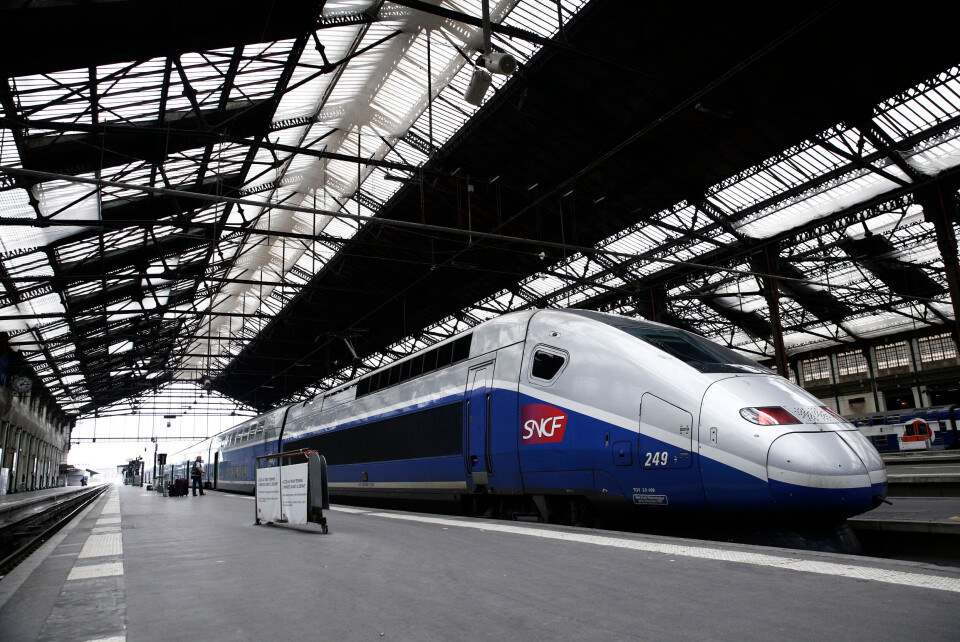-
Pistes closed, confinement orders: Alpine resorts deal with avalanche risk
Increased snowfall this weekend may cause further closures as busy school holiday season continues
-
Former French Interior Minister announces 2027 presidential candidacy
Bruno Retailleau recently asked prefectures to be tough on immigration
-
Ryanair axes Dublin-Rodez route but London connection retained
“We are disappointed but had no say in decision” say airport authorities
French Christmas rail strikes: 200% ticket refunds for cancellations
This exceptional compensation is ‘owed’ to people whose journeys will be affected over the holidays, says SNCF boss

[Update December 22 at 08:30 - SNCF has said that people will be able to claim compensation for cancelled journeys using an online form set to be launched in the coming days. People whose booked train was cancelled should receive an email or text message inviting them to fill it in.]
French national rail operator SNCF will reimburse customers whose train is cancelled as a result of strikes with double the total cost that they paid for their ticket.
This was announced this morning (December 21) on Franceinfo by the CEO of SNCF Voyageurs Christophe Fanichet, ahead of ticket inspector strikes set to take place this and next weekend.
🔴 DIRECT 🗣 Grève à la SNCF : le week-end de Noël perturbé ➡️ “Je veux présenter les excuses de l’entreprise. C’est inacceptable. Les Français ont besoin de souffler“, réagit Christophe Fanichet, PDG de SNCF Voyageurs. “2 TGV sur 3 vont circuler, 3 Français sur 4 vont voyager.” pic.twitter.com/sr3Q3sI3Gk
— franceinfo (@franceinfo) December 21, 2022
The strike will primarily affect high-speed rail services such as TGVs and Ouigos.
SNCF has already announced that in general “at least” two in three trains will be running on this Christmas weekend despite the strike. The forecast for New Year’s weekend has not yet been revealed.
Read more: French rail operator offers reassurance over Christmas travel strikes
This weekend’s strike will cost SNCF “several tens of millions of euros”.
“A company like ours listens to its customers,” Mr Fanichet said, adding that SNCF “owed” it to customers to provide the exceptional compensation.
“Not being able to travel at a time like Christmas is unacceptable,” Mr Fanichet said. “I want to communicate apologies on behalf of the company.”
Customers who have received a text message or email informing them that their train has been cancelled, and those who have already cancelled their journey will be able to benefit from the compensation. They should contact SNCF customer service to arrange the reimbursement.
Passengers whose train has been cancelled but who have been able to find a seat on another service will not have to pay the price difference if their new ticket is more expensive. “The exchange is absolutely free,” Mr Fanichet said.
These people can “take a train to the same destination, on any other day, with no price increase.”
Mr Fanichet said that the strike “makes [him] really angry,” and that he still hopes to convince some rail workers not to take the action. “I say to ticket inspectors: it is Christmas, French people need to be able to get away. I ask them to go back to work.”
How will the strike affect different regions?
Initial predictions from SNCF suggest that one in every four passengers will see their journey cancelled on Christmas weekend, making the strike significant but not as severe as that of Christmas 2019, or earlier this month, when 60% of TGV trains were cancelled.
On Friday (December 23), two in every three trains will operate as normal on the Atlantic and Mediterranean coast networks, and one in two in the north of France.
Services between Paris and Lille will run almost normally, while in the east three in four trains will be operating as scheduled.
TGV trains between ‘gares de province’ (stations not on Paris routes), should be the most severely impacted.
Three in four Ouigo services will run as normal, and Intercités trains should not be affected.
The exact details of the effect of the strike on Saturday and Sunday (December 24-25) have not yet been published. However, the situation is set to be similar to Friday or “slightly worse,” Alain Krakovitch, director of TGV-Intercités, said.
The traffic forecast for Saturday and Sunday is not yet confirmed because ticket inspectors must declare their intention to strike 48 hours in advance. Further information will therefore be known tomorrow and on Friday.
Some 200,000 people are expected to not be able to travel, of the 800,000 passengers expected to be boarding French trains this weekend.
Affected passengers will receive a text message or email with information about their train. People are encouraged to bring their journey forward if they can, as 120,000 seats are still available today and tomorrow (December 21-22), and exchanges are free.
If people decide not to travel, they can also choose the refund option.
Traffic should be “normal” on Monday (December 26).
Christophe Fanichet, PDG de SNCF Voyageurs à propos de la grève: "L'état des déclarations nous permet de prévoir au moins 2 trains sur 3 pour ce week-end" pic.twitter.com/AZvUaTb49i
— BFM (@BFMTV) December 20, 2022
Why is the strike happening?
Ticket inspectors are protesting against their current pay and career progression. A strike notice was issued by the CGT and SUD-Rail unions for December 23-26 and December 30-January 2.
The CFDT and Unsa unions have not issued a strike notice. CGT and SUD-Rail are not actively calling on their members to strike, but have not retracted their notices, leaving it up to workers whether they choose to take action or not.
The possibility of a strike emerged from a Facebook group uniting 3,500 of France’s 10,000 ticket inspectors, called le Collectif ACST.
Related articles
Rail strikes called on Christmas and New Year weekends in France
Travel strikes, face masks, wood heating aid: The week ahead in France
























